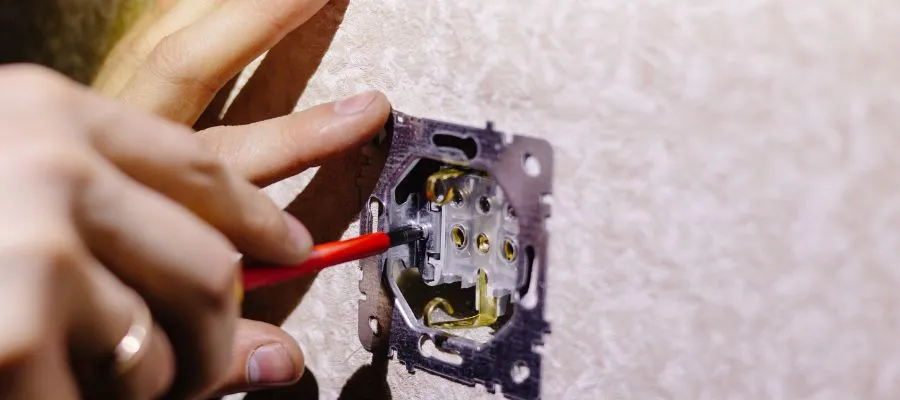Electrical work around the home can be completely safe if you take the right precautions. Electrical shock is easily prevented if you know what faults to look for and how to avoid them. In this blog, Brick & Bolt explains a few tips on how to keep your house safe from short circuits and shock.
Electrical work around the home can be completely safe if you take the right precautions. Electrical shock is easily preventable if you know what faults to look for and how to avoid them. Similarly, short-circuiting, which can happen from the contact of 2 unintended wires, is a common problem at home. It is important to emphasise the rules and precautions that need to be taken around electrical work.
Tips to Make Your House Safe From Short Circuits and Shock Proof

- The first step to ensure good electrical safety measures at home, especially from short circuits, would be to choose outlet plug covers at all times. It might mean more work, but it is important to ensure that these covers are used to keep the plugs safe, especially for children. This also helps prevent any type of accidental tampering with the wires. These outlets open only during plug-in, which will be safer.
- Replacing damaged fixtures around the house is very important. It might seem like a small shock or a spark each time you plug in. If you have frayed wires or other issues with your fixtures, have them attended to immediately by a professional. Electrical safety control measures are important in cases like using a cover plate for switch points, as this will help remove any chances of tampering with the wires.
- If you plan to use extension cords in the house, be very careful about arranging them to prevent them from being tripper accidentally chewed by pets or rodents that might cause a shock. One way to do this is to use small rings to send the wire through. The arrangement will make the cord hidden and safe. Also, if they are outdoors, ensure they are indoors and covered properly in case of rain.
- Always have the main power cut off during any remodelling or while getting any work done. This is very important, even if the process may seem small. Similarly, while working with multiple wires, ensure you have them insulated or decently separated to prevent short-circuiting.
- Be very careful when using electrical appliances in areas involving water. Keep the points dry, and never use appliances with water on the plugs. Also, be careful in places where there is a chance for condensation.
- Keep all wiring so that it is only deep inside the walls. Be very careful around the house during storms or any other time when the wiring is pulled out. Know the rating of the appliances as well as the wiring and plugs just to make sure there is no chance of overloading. If you face an issue in such a note, get professional help to replace it.
- Feature plug points or switches at a decent height on the walls, unreachable from children. Electrical safety measures and shock prevention must always be more important, especially when children are present.

